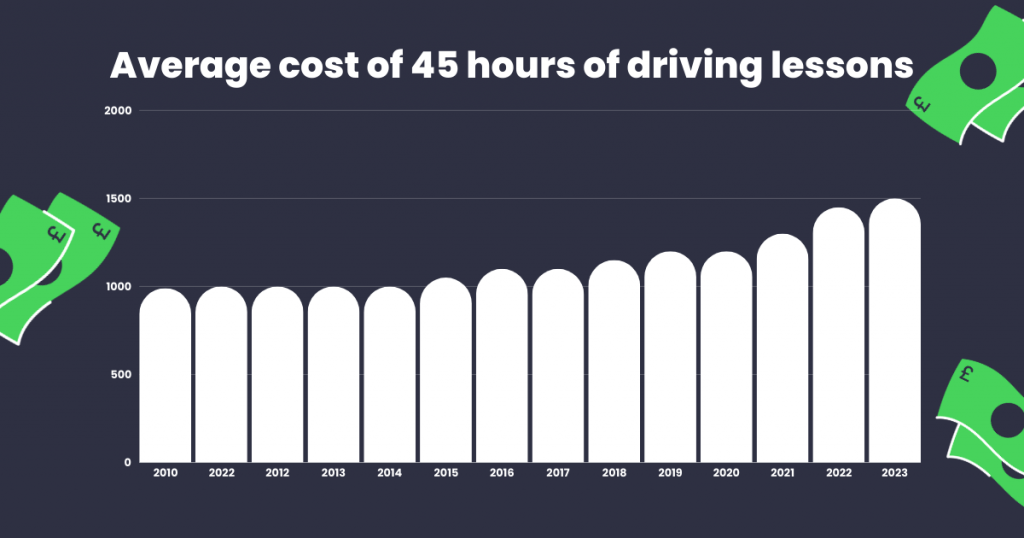Last Updated on February 20, 2025
Learning to drive is an exciting milestone in a person’s life. However, it can also be challenging, especially for those juggling multiple responsibilities such as work, study, and social commitments. For learner drivers, effective time management is essential to ensure that driving lessons fit seamlessly into an already busy schedule. Whether you’re a student, a working professional, or someone balancing both, mastering time management can make the process of learning to drive less stressful and more efficient.
In this blog, we’ll explore strategies to help you balance your driving lessons with other life commitments. We’ll delve into why managing time while learning to drive is crucial and help to provide actionable tips to ensure that your journey to becoming a licensed driver is smooth and successful.
Balancing Work, Study, and Driving Lessons
The Challenges of Managing Multiple Responsibilities
Balancing driving lessons with work and study can be challenging for young adults, many of whom are already dealing with the pressures of academic deadlines, part-time jobs, and social obligations. The key to overcoming these challenges lies in effective planning and the ability to prioritise tasks.
Learner drivers who are students may find themselves grappling with the demands of coursework and exam preparation, while those who are working professionals might struggle to find time for lessons around their job commitments. Additionally, social life and family responsibilities can further complicate scheduling. Without careful management, it’s easy to feel overwhelmed, leading to delayed progress in learning to drive. To navigate these challenges, it’s essential to adopt a proactive approach, setting realistic goals and making the most of available time
Why Is It Important to Manage Time When Learning to Drive?
| Reduces Stress | Proper time management allows you to allocate sufficient time for lessons, reducing the stress of feeling rushed or unprepared. |
| Improves Learning Efficiency | Consistent and well-planned lessons ensure better retention and understanding of driving skills, leading to faster progress. |
| Enhances Work-Life Balance | Balancing driving lessons with work or study helps maintain a healthy work-life balance, preventing burnout. |
| Saves Money | Efficient time management means fewer last-minute cancellations or rescheduled lessons, which could save you money in the long run. |
| Builds Confidence | Regular and well-timed lessons build confidence behind the wheel, helping you feel more prepared for your driving test. |

Source: https://www.telegraph.co.uk/money/consumer-affairs/gen-z-costing-parents-refusing-learn-drive/
Ways to Manage Time When Learning to Drive
Create a Weekly Schedule
One of the most effective strategies for managing your time as a learner driver is to create a detailed weekly schedule. Start by listing all your commitments, including work, study, and social activities. Next, identify the gaps in your schedule where driving lessons can fit. Ideally, these should be times when you’re not too tired or distracted, ensuring you can focus fully on the lesson. Digital calendars or planner apps can be particularly helpful in keeping your schedule organised and accessible.

Source: https://www.telegraph.co.uk/money/consumer-affairs/gen-z-costing-parents-refusing-learn-drive/
Prioritise Driving Lessons
It’s easy to let driving lessons slip down your list of priorities, especially when other responsibilities demand your attention. However, treating driving lessons as a priority can significantly enhance your progress. Consider scheduling lessons at the same time each week to create a routine. This helps with consistency and may also ensure that your driving skills remain fresh, reducing the time needed to revisit and relearn.
Opt for Intensive Driving Courses
For those with particularly tight schedules, intensive driving courses can be an excellent option. These courses condense the learning process into a shorter period, allowing you to focus intensively on driving without prolonged gaps between lessons. While the initial commitment is higher, the overall time spent learning to drive can be significantly reduced. This is especially beneficial for working professionals or students who want to obtain their licence quickly.

Source: https://www.uswitch.com/car-insurance/learner-driver-statistics
Combine Driving Lessons with Study or Work Breaks
If you’re a student or a working professional, consider scheduling driving lessons during breaks or gaps in your day. For example, if you have a two-hour gap between lectures or an hour lunch break at work, this could be an ideal time for a driving lesson. This approach helps you make the most of your available time without compromising other responsibilities.
Use Weekend and Evening Slots
For busy individuals, weekends and evenings are often the best times to schedule driving lessons. Many driving instructors offer lessons outside of traditional working hours, catering to those with 9-to-5 jobs or full-time study commitments. While evening lessons can be more challenging due to reduced visibility, they offer valuable experience in driving under different conditions. Weekend lessons, on the other hand, provide more flexibility and the opportunity for longer, uninterrupted sessions.

Conclusion
Managing time while learning to drive is a critical skill that could make your journey to becoming a licensed driver smoother and less stressful. By prioritising your driving lessons, creating a structured schedule, and exploring flexible learning options like intensive courses or evening lessons, you can balance your driving education with other life commitments effectively. Remember, the key is to remain consistent and focused, ensuring that each lesson builds on the last.
With proper time management, you could not only become a confident driver but also gain a valuable skill that will serve you well in other areas of your life.
Get a learner driver insurance quote today!
FAQs
It’s generally recommended to have 1-2 hours of driving lessons per week. This frequency allows for consistent practice without overwhelming your schedule. The key is to ensure that lessons are spaced out enough to allow for retention but close enough to maintain progress.
Yes, many learner drivers successfully balance driving lessons with full-time work or study. Consider scheduling lessons during breaks, in the evenings, or on weekends to accommodate your commitments.
Intensive driving courses are ideal for those who want to learn to drive quickly and have the time to commit to an intensive schedule. However, they may not be suitable for everyone, particularly those who prefer to learn at a slower pace or who need more time to build confidence.
Good time management is key. Start by creating a realistic schedule that balances driving lessons with other commitments. Don’t hesitate to take breaks if you feel overwhelmed and communicate with your instructor to ensure your lessons are at a pace that suits you.
If you need to cancel a lesson, try to do so as early as possible to avoid any cancellation fees. Work with your instructor to reschedule the lesson at a time that fits your availability. Regular communication and flexibility are essential to managing such conflicts effectively.









